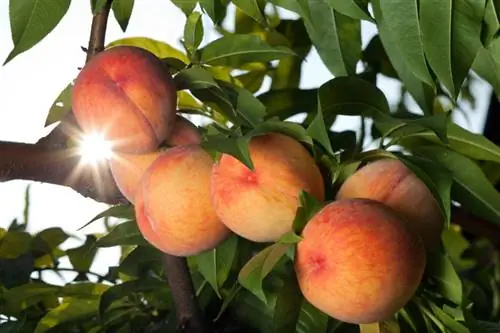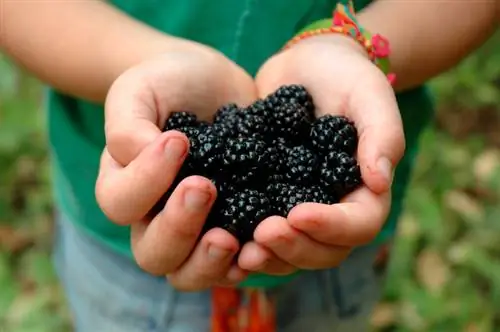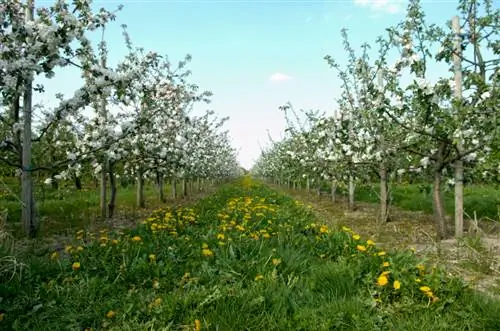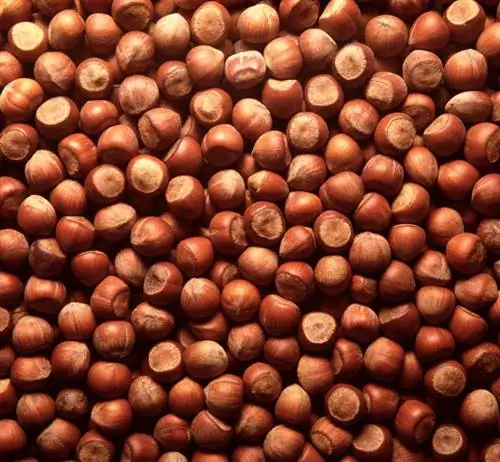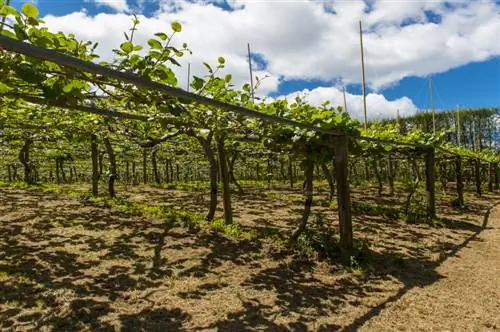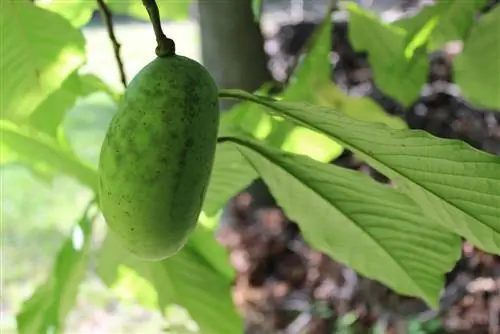- Author admin [email protected].
- Public 2023-12-16 16:46.
- Last modified 2025-01-23 11:19.
The spirits argue about when is the best time to plant a peach tree. Many experts recommend planting in spring because peaches take a long time to grow. However, autumn planting has the advantage that the tree then gets the winter break it needs to produce fruit. But no matter when you want to plant your peach: it doesn't need to be fertilized in the first year.
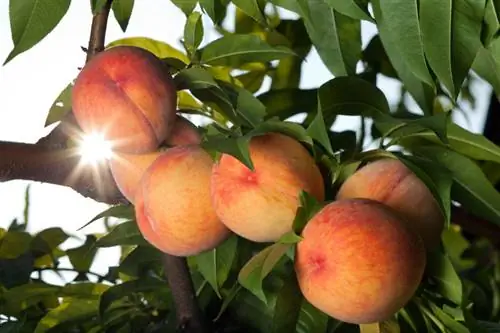
How should you properly fertilize a peach tree?
In order to properly fertilize a peach tree, you should use organic fertilizers such as manure, horn shavings or mature compost in the second year from February/March. Fertilize monthly until September, watering the tree liberally to avoid root burns. Nitrogen and potassium are particularly important for the growth and fruiting of the tree.
Location with nutrient-rich substrate
Peaches need plenty of nutrients, especially nitrogen and potassium is essential for he althy tree and fruit growth. Plant your peach tree in humus-rich garden soil, which should be enriched with humus if necessary. Since young trees are very sensitive, fertilizer should not be applied in the first year of growth. However, the young peach needs plenty of water and should be watered regularly, especially in summer. However, waterlogging should be avoided.
Care measures from the second year onwards
In the second year, you can fertilize with ripe compost or manure from February / March. From May onwards, fertilizer should be applied regularly once a month and continued until September. After all, there is no fertilization in winter. Combine fertilization with abundant watering. This is especially important if you use chemical fertilizer, otherwise root burns due to a chemical reaction can occur.
Suitable fertilizers for peaches
When fertilizing peaches (as well as other types of fruit), preferably choose organic fertilizers because all additives are concentrated in the fruits. Peaches especially need nitrogen and potassium for he althy growth and abundant fruiting. Suitable fertilizers are
- Stable manure (poultry manure is particularly rich in nitrogen!)
- Horn shavings
- ripe compost
- alternative fruit fertilizer
- or a nitrogen fertilizer containing potassium.
Watering peaches properly
Young peach trees should be watered regularly, especially in the first year. However, since the plants are very sensitive to lime, you should preferably use rainwater. If you don't have the means to collect it, simply leave tap water to stand for about a week. However, do not pour off the calcareous sediment. Older peaches can usually provide themselves with water; only plants kept in containers should continue to be watered.
Tips & Tricks
Furthermore, you do not have to cut your young peach tree in the first year. The first cutting takes place in the autumn of the second year. Peaches can be pruned after harvest in autumn, but also in spring.

